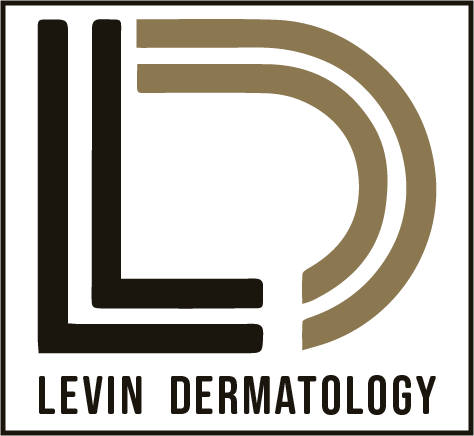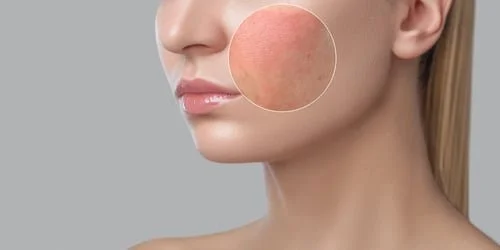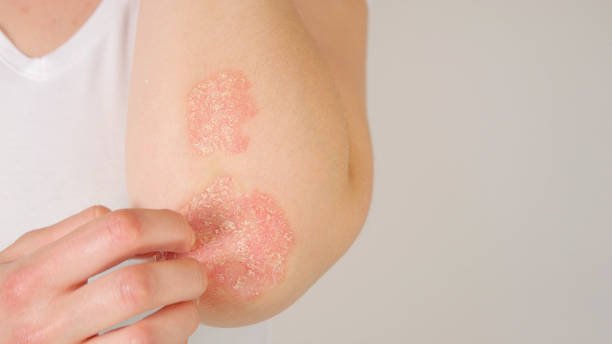Medical Dermatology
Here is a list of some of the most common skin conditions that are seen in Dr. Levin’s clinic:
Acne
•
Aging Skin
•
Allergic Skin Reactions
•
Birthmarks
•
Color/Pigment Changes of the Skin
•
Contact Dermatitis
•
Cysts
•
Dry Skin
•
Eczema
•
Hair Loss/Alopecia
•
Moles/Dysplastic Nevi
•
Nail Conditions
•
Precancerous Lesions/Actinic Keratoses
•
Psoriasis
•
Rashes
•
Rosacea
•
Scalp Problems
•
Scars/Keloids
•
Skin Cancer
•
Skin Growths/Keratoses
•
Skin Infections
•
Sun Damage
•
Warts/Molluscum
•
Acne • Aging Skin • Allergic Skin Reactions • Birthmarks • Color/Pigment Changes of the Skin • Contact Dermatitis • Cysts • Dry Skin • Eczema • Hair Loss/Alopecia • Moles/Dysplastic Nevi • Nail Conditions • Precancerous Lesions/Actinic Keratoses • Psoriasis • Rashes • Rosacea • Scalp Problems • Scars/Keloids • Skin Cancer • Skin Growths/Keratoses • Skin Infections • Sun Damage • Warts/Molluscum •
Acne
-
Acne is a common skin condition that occurs when hair follicles become clogged with oil and dead skin cells. It typically appears as pimples, blackheads, whiteheads, and sometimes deeper, painful nodules or cysts. Acne usually affects areas of the skin with a high density of oil glands, such as the face, neck, chest, back, and shoulders.
There are multiple factors contributing to the development of acne including excess oil protection, dead skin cells, bacteria, inflammation, hormonal changes, genetics and diet.
The treatment of acne depends on its severity and type and may include over-the-counter products, prescription creams, oral medications (including antibiotics, oral contraceptives, anti-androgen medications or, sometimes, isotretinoin), and lifestyle factors, including avoiding touching and picking the skin, improved diet, management of oil and sweat and sun protection.
Dr. Levin will discuss with you the various treatment options, depending upon the severity of your acne, and will develop a comprehensive plan that addresses your concerns and needs.
Eczema
-
Eczema, also known as dermatitis, is a common skin condition characterized by inflammation, redness, itching, and sometimes the formation of blisters, scaly patches, or crusts on the skin. It can vary in severity and often comes and goes in flare-ups. Eczema is not contagious and can occur in people of all ages, but it is more common in children.
There are several types of eczema, with the most common being:
Atopic Dermatitis: This is a chronic form of eczema that is often associated with other allergic conditions like asthma or hay fever. It typically starts in childhood and can continue into adulthood. Atopic dermatitis is characterized by dry, itchy skin that can become red and inflamed. Scratching can worsen the condition and lead to skin thickening.
Contact Dermatitis: This type of eczema occurs when the skin comes into contact with irritants (irritant contact dermatitis) or allergens (allergic contact dermatitis). Common irritants include detergents, soaps, chemicals, or even prolonged water exposure. Allergic contact dermatitis is triggered by specific substances the person is allergic to, such as certain metals, plants, or cosmetics (such as poison ivy).
Nummular Dermatitis: This type is characterized by round, coin-shaped patches of irritated skin. It is often triggered by dry skin and may be worsened by cold, dry weather.
Dyshidrotic Eczema: This form of eczema appears as small, fluid-filled blisters, usually on the hands and feet. It can be triggered by factors like stress, allergies, or exposure to certain substances.
The exact cause of eczema is not fully understood, but it is believed to result from a combination of genetic, immune system, and environmental factors. Individuals with a family history of eczema, asthma, or allergies may be more prone to developing eczema.
Treatment for eczema aims to relieve symptoms, reduce inflammation, and prevent flare-ups. Treatment options may include avoidance of triggers, moisturizers, topical creams, antihistamines, phototherapy (light therapy), systemic medications (oral or injectable medications), and biologics (that target specific immune responses).
Dr. Levin will help you develop an ongoing plan to best manage your eczema and adjust treatments as needed to effectively manage your condition and improve your quality of life.
Hair Loss
-
Alopecia is the medical term for hair loss, and it can occur in various forms, affecting people in different ways. Some of the most common types of hair loss seen by Dr. Cheryl Levin include:
1. Androgenetic Alopecia (male and female pattern baldness), which is often genetic and related to hormonal changes, particularly androgens (male hormones)
2. Alopecia Areata - an autoimmune condition where the body’s immune system mistakenly attacks hair follicles. This is usually manifest as sudden, round patches of hair loss and can affect anyone, regardless of age or gender
3. Telogen Effluvium - this type of hair loss is typically triggered by stress, illness, pregnancy or a sudden hormonal change. It’s a temporary shedding of hair, usually in response to a shock to the body
4. Traction Alopecia - This type of hair loss occurs when hair is pulled too tightly over a prolonged period. It’s often seen in people who wear tight hairstyles like ponytails, braids, or buns.
5. Scarring alopecia - there are several types of hair loss that may cause scarring. These types of hair loss occur when inflammation damages the hair follicle and replaces them with scar tissue, leading to permanent hair loss. This may be caused by various conditions, including infections, autoimmune diseases, or inflammatory scalp disorders (like lupus or lichen planus).
There are multiple factors contributing to the development of acne including excess oil protection, dead skin cells, bacteria, inflammation, hormonal changes, genetics and diet.
The treatment of acne depends on its severity and type and may include over-the-counter products, prescription creams, oral medications (including antibiotics, oral contraceptives, anti-androgen medications or, sometimes, isotretinoin), and lifestyle factors, including avoiding touching and picking the skin, improved diet, management of oil and sweat and sun protection.
Dr. Levin will discuss with you the various treatment options, depending upon the severity of your acne, and will develop a comprehensive plan that addresses your concerns and needs.
General Tips for Managing Alopecia:
Consult a dermatologist: If you notice sudden or patchy hair loss, it’s important to get a proper diagnosis.
Maintain a healthy diet: Ensure you're getting enough essential vitamins and minerals that support hair health.
Minimize stress: Since stress can be a trigger for many types of hair loss, practicing stress-reduction techniques like yoga or meditation can be beneficial.
Gentle hair care: Avoid harsh chemicals or hairstyles that put excessive tension on your hair.
Hair loss can be distressing, but it's important to know that there are treatments available for many types of alopecia. Dr Cheryl Levin can help you figure out the cause and the best course of action for your specific situation.
Rosacea
-
Rosacea is a chronic skin condition that primarily affects the face, causing redness, visible blood vessels (telangiectasia), and sometimes pimple-like bumps or pustules. It often develops gradually and tends to occur in adults. Rosacea can vary in severity and may come and go in cycles, with periods of flare-ups and remission.
The exact cause of rosacea is not fully understood, but several factors are believed to contribute to its development including blood vessel abnormalities, inflammation, demodex mites, genetics, and various triggers including environmental, dietary, and other lifestyle factors such as hot or spicy foods, alcohol, extreme temperatures, and certain skin care products.
Treatment options may include over-the-counter products, prescription creams, oral medications (including antibiotics and anti-androgen medications), and laser and light therapy to improve the flushing and redness and help control the triggers.
Dr. Levin will evaluate your skin condition and provide a proper diagnosis and a tailored treatment plan. Early intervention and proper management can help control symptoms and improve the quality of life for those affected by rosacea.
Psoriasis
-
Psoriasis is a chronic autoimmune skin condition that causes the rapid buildup of skin cells, resulting in thick, silvery scales and red, inflamed patches on the skin. It is a non-contagious disorder that can range from mild to severe and often has periods of flare-ups and remission. Psoriasis can affect any part of the body, including the scalp, elbows, knees, and nails.
Psoriasis may also affect the joints (psoriatic arthritis). It may manifest as swelling or pain in a few joints and stiffness in the morning. Over time it can damage the joints and lead to severe functional problems.
The exact cause of psoriasis is not fully understood, but it is believed to involve an overactive immune system response that triggers the rapid growth of skin cells. Genetics also play a significant role, as a family history of psoriasis increases the risk of developing the condition.
Treatment for psoriasis aims to alleviate symptoms, reduce inflammation, and slow down excessive skin cell growth. Treatment options vary depending on the severity of the condition, the type of psoriasis, whether it is affecting the joints, and whether the patient has other medical conditions such as high blood pressure or cardiovascular disease.
Treatments may include topical treatments, phototherapy (controlled UV light), systemic medications (oral or injectable medications), and biologics (that target specific immune responses).
Dr. Levin will help diagnose and manage your psoriasis, in order to improve your quality of life and prevent complications associated with psoriasis.
Moles and Other Skin Growths
-
Nearly everyone has moles (also known as nevi) on their skin. Typically, moles are uniform in color, round in shape with smooth edges, and exhibit no changes from one month to the next. While gradual growth may be natural for a mole, more rapid changes in color, shape, or size are cause for concern.
Many other harmless skin growths other than moles may occur on the skin. These include seborrheic keratoses, warts, cysts, skin tags, and many others. It is important to have skin lesions evaluated since some types of growths can be potentially harmful or could even be early forms of skin cancer.
Dr. Cheryl Levin possesses specialized training to recognize early signs of melanoma and other skin cancers as distinct from different types of moles and benign skin growths.
Skin Cancer
-
Basal cell carcinoma (BCC) is the most common type of skin cancer. It is actually the most common type of cancer altogether and is found in all skin types, though is most common in lighter-skinned individuals who burn easily. It may appear as a pimple, scar, or sore that doesn’t resolve, and is often pink-colored, though may be skin-colored, brown, black, blue, grey, yellow, or white. When found early, it is highly treatable.
Squamous Cell Carcinoma (SCC) is the second most common type of skin cancer and is most common in areas of chronic sun exposure, such as the face, ears, lips, scalp, and back of the hands. Notably, women frequently develop SCC on the lower legs. This skin cancer may also develop in areas that get little to no sun, such as the mouth, genitalia, and anus. It’s believed that the cause in these areas may be related to injury or HPV (human papillomavirus) infection. Immunocompromised individuals, such as transplant patients on immunosuppressive medications, are more likely to develop SCCs.
SCC sometimes begins as a precursor - a scaly, rough growth referred to as an actinic keratosis. Characteristically firm, rough, and tender to the touch, SCC tends to grow more rapidly than BCC and is more likely to spread to other parts of the body. SCCs are generally highly treatable when caught early.
Melanoma is less common than basal cell carcinoma or squamous cell carcinoma but it is a more serious form of skin cancer and is more likely to spread to other parts of your body. It may develop from an existing mole or it can be a new lesion that developed on previously normal skin. Signs of melanoma include the ABCDE’s: Asymmetry, Border Irregularity, Color Variation, Diameter greater than 6 mm, and Evolving/changing color, shape, or size. An early warning sign of melanoma is a spot on your skin that looks different from all others. Everyone, including people who have skin of color, should be aware of melanoma and perform self-skin examinations monthly. Detecting and treating melanoma early may prevent complex and difficult treatment that would become necessary if the cancer grows deep or spreads.
To schedule a medical consultation with Dr. Levin, please contact us
*If you want to make an appointment, please include your date of birth and address with zip code in the “Message” box.








